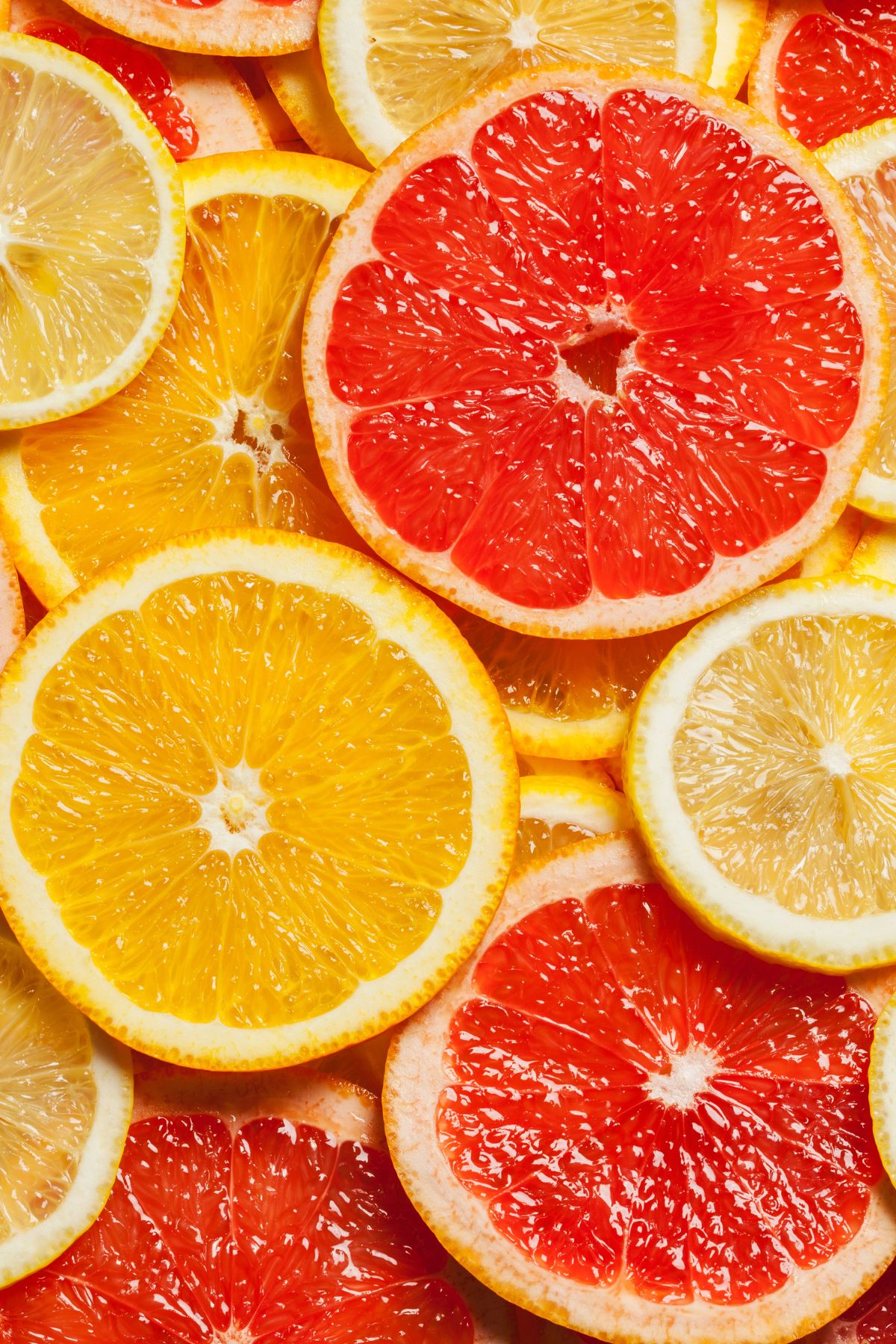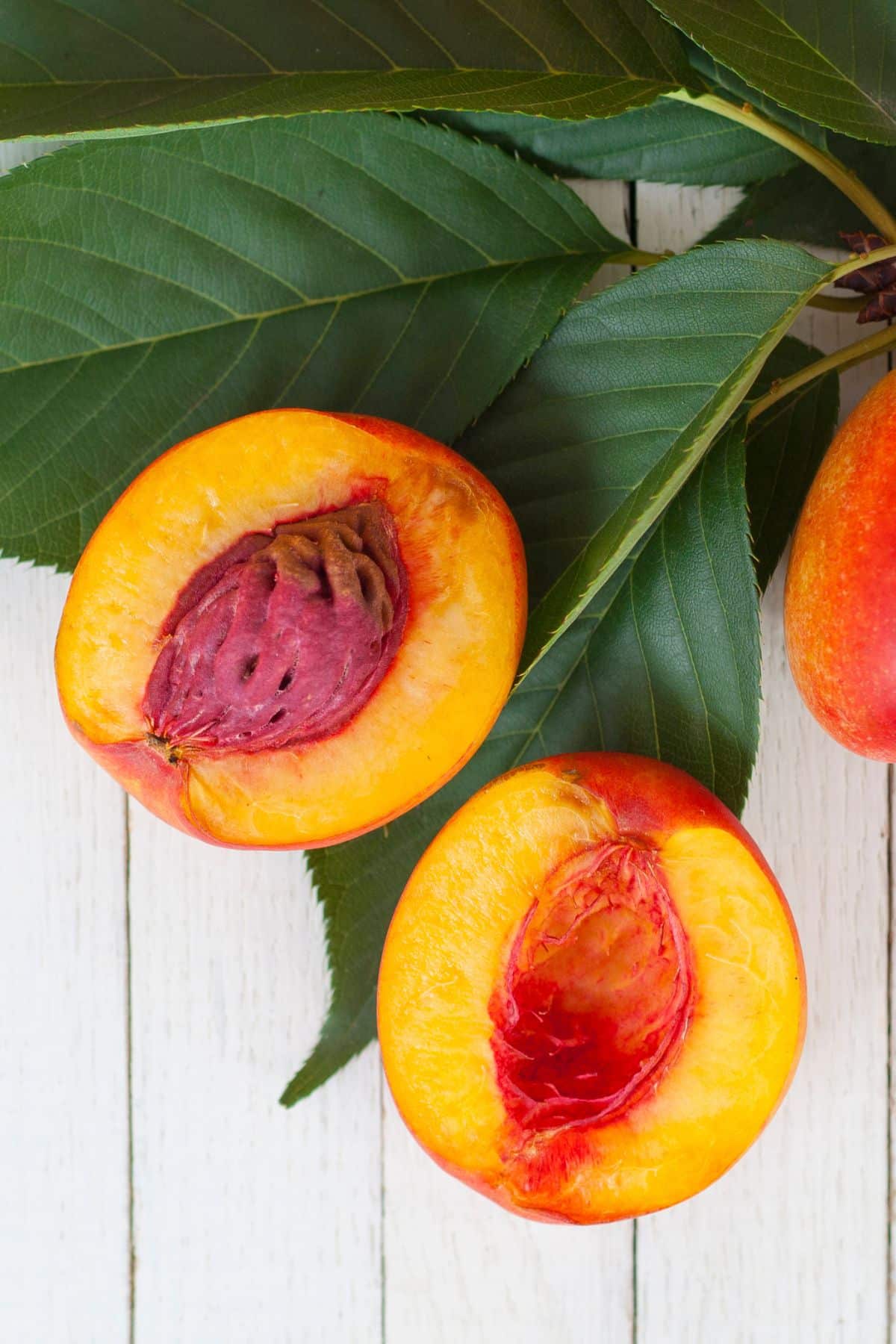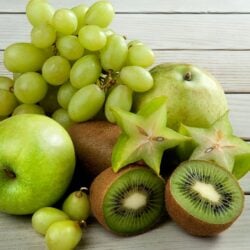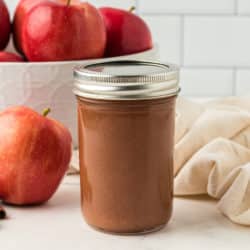26+ Orange Fruits (Delicious & Healthy)
Looking for a list of orange fruits? Here is the most comprehensive list on the web that includes some of the potential health benefits and ways to use these orange fruits. Find all the most common orange-hued fruits, plus many more you’ve probably never heard of!

Orange Fruits List
Orange fruits and orange vegetables are full of antioxidants and carotenoids which can help with eye health, cancer risk reduction, weight loss, high blood pressure, macular degeneration and overall health.
Try to consume at least several servings of these bright orange fruits a week.
Scroll through the list or click on each one for more information.
- Apricots
- Blood Oranges
- Butternut Squash
- Calamansis
- Cantaloupe
- Golden Berries
- Grapefruit
- Kinnows
- Kumquats
- Mandarins
- Mangos
- Marian Plums
- Nectarines
- Naval Oranges
- Orange Bell Peppers
- Orange Cherry Tomatoes
- Orange Kabocha Squashes
- Papayas
- Peaches
- Persimmons
- Physalis
- Pumpkins
- Red Kuri Squashes
- Seville Oranges
- Tangerines
- Valencia Oranges
1. Apricots

An apricot is a fruit that is grown in many different parts of the world. They are small and round and have smooth, orange skin.
Apricots are sweet and tangy, with a slightly sour taste.
Try to choose apricots that have a smooth skin and a deep yellow or orange color. Eat them when they are ripe (they should be soft to the touch).
2. Blood Oranges
Blood oranges are a type of orange that gets its distinctive red color from anthocyanin, which is a pigment found in the fruit’s skin.
Blood orange fruits have a slightly sweeter, more floral flavor than other types of oranges, and their flesh can range in color from deep red to pink.
This sweet orange is usually harvested in the fall and winter months in North America. They looks like regular oranges on the outside, but their flesh and juice is a dark red color (hence, the name “blood orange”).
Try using blood oranges in my blended orange juice recipe for a delicious beverage full of vitamin C.
See my related article with substitutes for orange juice if you are making a recipe and don’t have fresh oranges on hand.
3. Butternut Squash
A butternut squash is a type of winter squash that is typically grown in North America. And, yes, a squash is technically a fruit! It has a long, neck-like shape and light brown to orange or tan-colored skin.
The flesh of the squash is orange or yellow and is very sweet and dense. This squash is high in beta carotene which has health benefits for eye heath and fighting free radicals.
It is generally known as one of the winter squashes and is very popular in the fall.
Try using it to make my 3-Ingredient Butternut Squash Soup.
4. Calamansis
A calamansi is a small, citrus fruit that is native to Southeast Asia. The fruits are typically oval or round, and range in color from green to yellow or orange.
The skin of a calamansi is thin and acidic, and the flesh is juicy and tangy.
5. Cantaloupe

Cantaloupes are grown in warm climates around the world and have a characteristic oval or oblong shape with a ribbed or scaly exterior.
The flesh of a cantaloupe is orange or salmon-colored and has a sweet, fragrant flavor. It’s one of the best fresh fruits you can try.
6. Golden Berries
Golden berries, also known as Inca berries, are small, yellow-orange fruits that are native to Peru.
They have a sweet and sour flavor and are often used in jams, jellies, and pies.
7. Grapefruit
A grapefruit is a citrus fruit that grows on a tree. The tree is native to Asia, but the fruit is now grown in many parts of the world.
Grapefruits are usually round or oval, and they have thick, yellow or pink skin. The flesh of the fruit is juicy and has a sour taste.
8. Kinnows
A kinnow is a type of citrus fruit that is native to South Asia. Kinnows are small, round fruits that have an orange-yellow color.
Kinnows have a juicy, sour-tart taste, and are often used in juices and desserts. This small fruit is harder to find in North America, but is one of the variety of fruits in the color orange.
9. Kumquats

A kumquat is a small citrus fruit that resembles an orange. Kumquats are native to Asia and are grown in China, Japan, and Korea.
They have a sweet taste with a sour aftertaste.
10. Mandarins
A mandarin orange is a small citrus fruit that is similar to an orange.
Mandarins are grown in warm climates, such as in China and Japan. They have thin skin that is easy to peel off, and the flesh of the fruit is very sweet.
11. Mangos
A mango is a fruit that is grown in tropical climates. Mangos are typically oval or round in shape and have a smooth, fleshy exterior and a flat seed.
Mangos are yellow, orange, or red in color, and the flesh of the fruit is sweet and juicy.
I love making Mango Ice Cream, Mango Peach Smoothie, or fresh Mango Juice!
12. Marian Plums
A Marian plum is a fruit-bearing tree that is native to China.
The fruits are small and round, with red or purple skin and yellow flesh. They have a sweet taste with a hint of sourness.
13. Nectarines

A nectarine is a type of fruit that is closely related to the peach.
Nectarines are grown in warm climates all around the world, including California, Chile, Italy, and Australia. They have smooth skin and sweet, juicy flesh with a slightly tart flavor.
Nectaries often have a sweeter taste than peaches and are one of my personal favorite stone fruits.
14. Naval Oranges
A naval orange is a type of orange that is grown in warm climates on orange trees, such as California and Florida, and has a deep orange color.
Naval oranges are usually seedless and have a sweet taste. I love using a naval orange plus coconut water to make an Adrenal Cocktail.
These citrus fruits are usually not too expensive and are the one of the most common orange foods.
15. Orange Bell Peppers
An orange bell pepper is a type of sweet pepper that is named for its shape and color. And, yes, a bell pepper is technically a fruit, not a vegetable!
Orange peppers are grown in many parts of the world, including the United States, Mexico, and South America.
They have a mild, sweet flavor and are often used in salads, stir-fries, and other dishes.
16. Orange Cherry Tomatoes
An orange cherry tomato is a small, round tomato that is typically orange in color. They are grown in warm climates and are known for their sweet flavor (they often have a sweeter taste than red tomatoes).
Orange cherry tomatoes range in size from about 1-2 inches in diameter and typically weigh less than an ounce.
17. Orange Kabocha Squashes

The orange Kabocha squash is a type of winter squash that grows in East Asia. It has green skin (or orange skin) and orange flesh, and its flavor has been described as sweet and nutty.
Kabocha squash is used in many Japanese dishes, such as tempura and soup.
See my recipe for Instant Pot Kabocha Squash.
18. Papayas
Papayas are native to the tropics of the Americas and are grown in many tropical countries. They are large, round fruits with green or yellow-orange skin.
The flesh is soft and orange, with black seeds in the center. Papayas are a tropical fruit that have a sweet, fruity taste.
19. Peaches
A peach is a fruit that originated in Northwest China but is now grown and enjoyed around the world. They are grown in warm climates and have fuzzy skin that can be eaten.
Peaches have a sweet taste and are often used in pies or eaten fresh.
Try my recipes for Peach Juice, Mango Peach Smoothie, or Air Fryer Peaches.
20. Persimmons
A Persimmon is a fruit that grows on trees in warm climates. They are oval or round and have hard, leathery skin. The flesh is orange or red and is sweet and juicy.
Persimmons are often eaten fresh, but can also be used in pies, jams, and other desserts.
21. Physalis

A physalis is a type of small, orange-yellow fruit that is similar in appearance to a tomato. They are grown in warm climates, such as in South America and Africa, and have a slightly tart, acidic flavor.
The fruits are often used in jams and jellies, as well as in savory dishes such as salsa. It has a bright orange color and is one of the pretties orange-colored foods.
22. Pumpkins
A pumpkin is a gourd-like squash. It is a large, fleshy fruit that is round or oblong with smooth, ribbed skin and has deep yellow to orange coloration.
Pumpkins have a sweet, earthy flavor and can be used in both savory and sweet dishes.
See my recipes for Pumpkin Brownies, Pumpkin Rice, or Pumpkin Seed Milk.
23. Red Kuri Squashes
A Red Kuri squash is a type of winter squash native to Japan.
The Red Kuri squash is typically oval or pear-shaped, and its skin is orange-red in color with greenish-brown stripes. The flesh of the squash is orange or yellow, and it has a sweet, nutty flavor.
24. Seville Oranges
A Seville orange is a type of orange that is grown in the Seville region of Spain. They are also known as Spanish oranges.
They are known for their strong flavor and acidic taste. Some people describe them as as a bitter orange, especially when compared to the naval orange.
Seville oranges are used to make marmalade, as well as used in many cocktails such as the classic gin and tonic.
25. Tangerines

Tangerines are believed to have originated in Southeast Asia and were later brought to China and other parts of Asia.
Tangerines are typically small and round, with thin, easy-to-peel skin that is orange or reddish in color and is sweet with a slightly tart flavor.
26. Valencia Oranges
Valencia oranges are a type of orange that was hybridized in the 19th century in California. They are one of the many different types of oranges and have high vitamin C.
They are smaller than other types of oranges, and they have thin skin. The flesh of a valencia orange is very juicy and has a sweet taste.
Summary
With so many different types of orange fruits to choose from, there’s sure to be one that you’ll love. So, next time you’re at the store, pick up a few of these delicious fruits and give them a try. From the naval orange to other members of the citrus family, these foods are a great way to get more variety in your diet.
Don’t Miss These Fruit Lists!
Don’t forget to join my newsletter list to get exclusive clean eating recipes and tips. The newsletter is 100% free with no spam; unsubscribe anytime.
About the Author: Carrie Forrest has a master’s degree in public health with a specialty in nutrition and is studying to be a holistic nutritionist. She is a top wellness and food blogger with over 5 million annual visitors to her site. Carrie has an incredible story of recovery from chronic illness and is passionate about helping other women transform their health. Send her a message through her contact form.




















